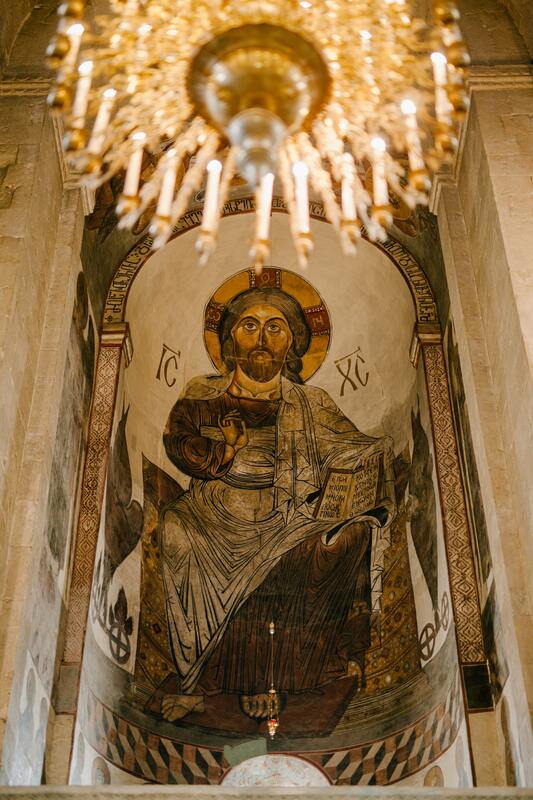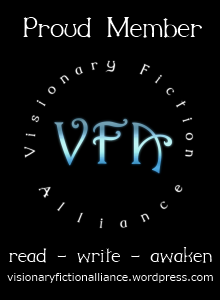|
Our Father, Perfect Love, We turn again to You. Guide us; help us to love, so that Your Will be done, on earth as in heaven. Give us this day that which we need. Fill us with hope and trust. Help us to forgive our brothers and sisters (and ourselves as well); and to look on them as you look on us. Give us strength to resist temptation. When we are tempted, let us choose peace. Deliver us from our fears. For what You love is safe. And Your love remains forever and always. Amen. Why, you might ask, would we want an alternative version of the Lord's Prayer?
Well, there are a couple of reasons why I felt moved to write this interpretation. First, no matter how inspired or inspiring words may be, there's a risk that with over-familiarity they may lose their power to stir and transform us. (Think of how moved you feel when you hear an amazing piece of music for the first time. You listen to it over and over again. As the days, weeks and months go by, the intensity of your response to the music may fade. You still like it, but it no longer inspires or affects you to the extent it did when you first heard it.) Adjusting the words may help us to engage with the prayer more deeply again. (To pick up the music analogy again, maybe you discover a fresh new cover of an old favourite song.) Second, for me, a prayer should be heart-felt. It should be authentic. How can I pray authentically using a set prayer if some of its words confuse me, or if I disagree with them? In the Lord's Prayer, there are a couple of things I struggle with:
5 Comments
In online Quaker Meeting for Worship this morning, someone spoke about Jesus' exhortation to love our enemies (see Luke 6:27). She asked how can we love our enemies, in particular those in positions of power. (Donald Trump, not the most popular figure among liberal-minded Quakers, got a specific mention.) After several minutes, I felt that familiar pounding in my chest - and knew that I had to speak. It's the first time that I've given vocal ministry in an online Quaker Meeting. These are the words which came to me: How do we love our enemies? Jesus didn't agree with his enemies; with those who crucified him. He didn't like what they did. But he forgave them.
Forgiveness is an unconditional expression of love. It's central to the teaching of A Course in Miracles. Indeed, The Course might easily have been called 'A Course in Forgiveness'. The Course tells us that forgiveness is our function (Lesson 62 of the Workbook); that it's the key to happiness (Lesson 121); that it offers everything we want (Lesson 122). In my new book, Encounters with A Course in Miracles, I devote a chapter to exploring what forgiveness is - and how we can open ourselves to forgive. To quote from Encounters, "In the world's eyes, to forgive a person means to pardon them for some wrongdoing. Their action caused us hurt but, because we're nice people, because we're charitable, we deign to forgive them. They're guilty and deserve condemnation, but instead we overlook their offence. "In the Course, forgiveness is something very different. It's a letting go of judgment, which helps us to see one another as we really are. It's the prerequisite for recognizing our oneness with our brothers and God." But how do we forgive Donald Trump (or insert here the name of your own personal bogeyman)? To understand the how of forgiveness, we might begin with the why. Forgiving another is a way of loving ourselves. To forgive means to let go of guilt. It doesn't matter whether the guilt is directed at ourselves (owned) or at others (projected). For as long as we hold on to guilt, we won't be at peace. Perhaps we aren't ready yet to let our hurt or our anger go. And that's okay. The first step is simply to notice our feelings. And then to acknowledge that, if we wanted to, we could choose peace instead. Can we really see peace when Donald Trump posts his latest tweet - and once again his words go against our deepest-held values and beliefs? Ask yourself this. "Is God withholding peace from us? And if God isn't, then who is? Donald Trump? If we think that, we're giving him power over our own happiness. He's not simply the President, he's become the ruler of our mind." (Encounters with A Course in Miracles.) Encounters with A Course in Miracles will be available in July 2020. “Come to me, all you who are weary and burdened, and I will give you rest.” As I interpret these words, Jesus is recalling us to the Christ Self – which He was and is, and which is our innermost Identity too. "Take my yoke upon you and learn from me, for I am gentle and humble in heart, and you will find rest for your souls." (Matthew 11:29) We are weary and burdened on a soul level – an inevitable consequence of believing we are separate individuals, apart from the Whole, doomed ultimately to wither and die. To borrow the analogy used in Chapter 15 of John’s gospel, we are living our lives as branches that have been cut from the vine. Sometimes, when working at my computer or carrying out some household task, I catch myself becoming impatient; wanting the task to be over so that I can move on to the next – more interesting – thing. Completion of the task has become my goal, and I’ve lost touch with my primary purpose, which is about my state of mind. My primary purpose can be described variously as being at peace; being whole; forgiveness (as understood in A Course in Miracles); coming to Christ; remembering my Self. Whenever I find myself getting impatient, hurrying, agitated or not at peace, it is time to pause, take a deep breath and, as John Butler advises, "feel my feet on the ground". Can I now resume the activity and be at peace? If not, it would be better to step away from the activity and give my mind space and time to return to stillness; to return to Christ. That is the yoke I yearn to take upon me. And it is my primary task. “I rest in God.” This thought will bring to you the rest and quiet, peace and stillness, and the safety and the happiness you seek. “I rest in God.” This thought has power to wake the sleeping truth in you, whose vision sees beyond appearances to that same truth in everyone and everything there is. Here is the end of suffering for all the world, and everyone who ever came and yet will come to linger for a while. Here is the thought in which the Son of God is born again, to recognize himself. I always sleep with a pen and note-pad by my bedside table. They were called into action in the small hours of last night as I woke with these thoughts, prompted by my study of Chapter 14, Section III of A Course in Miracles the previous evening… (I had to get up half way through, as my biro ran out of ink. Note to self: In future, keep two pens by my bedside table!)
Though we wear masks of innocence and see our occasional transgressions as justified, at an unconscious level, we feel guilty for the seeming act of choosing, through separation, to cut ourselves off from God. Our sense of guilt is reinforced each time we look at another with even a hint of judgment or condemnation, and do not see them as a Child of God. Every day, even before the cock crows, we deny the Son of God in our thoughts, seeing him or her as a body and not as part of our Self. But our errors - be they unkind (untrue) thoughts, or words or deeds - cannot harm the other person and do not affect the truth of Who they are. Our ‘crime’ is therefore an imagined one that takes place only in this dream of forms. Although I did not fully appreciate it at the time I was writing the novel, Escape to Redemption is an exploration of these same ideas. Josie inadvertently shoots someone. Initially, she tries to justify what she did. Soon, though, she is overwhelmed by guilt. Kogut (a student of A Course in Miracles who himself has a shady past) attempts to reassure her that, since “nothing real can be threatened”, even her serious crime does not alter the truth of Who she is. Can a part of God be guilty? Is there anything that is not a part of God? If the answer to both of these questions is ‘no’ then, as a part of God, I (that of God in me, my True Self) cannot be guilty. I must be innocent. How will I come to accept this? By seeing my brothers and sisters as innocent too. By looking past their mistakes (which are simply calls for love) and seeing only the Christ in them. In other words, it is through forgiveness - over-looking others’ seeming errors and beholding only the eternal truth of Who they are - that I can set aside my own feelings of guilt. “There is nothing to forgive. No one can hurt the Son of God. His guilt is wholly without cause, and being without cause, cannot exist.” (A Course in Miracles, Text, Chapter 14.III.5-7.) |
AuthorPeter Parr: Quaker, writer and former member of the British minigolf team. (Actually those are all just roles I play. Words can't describe who any of us really are.)
|



 RSS Feed
RSS Feed


